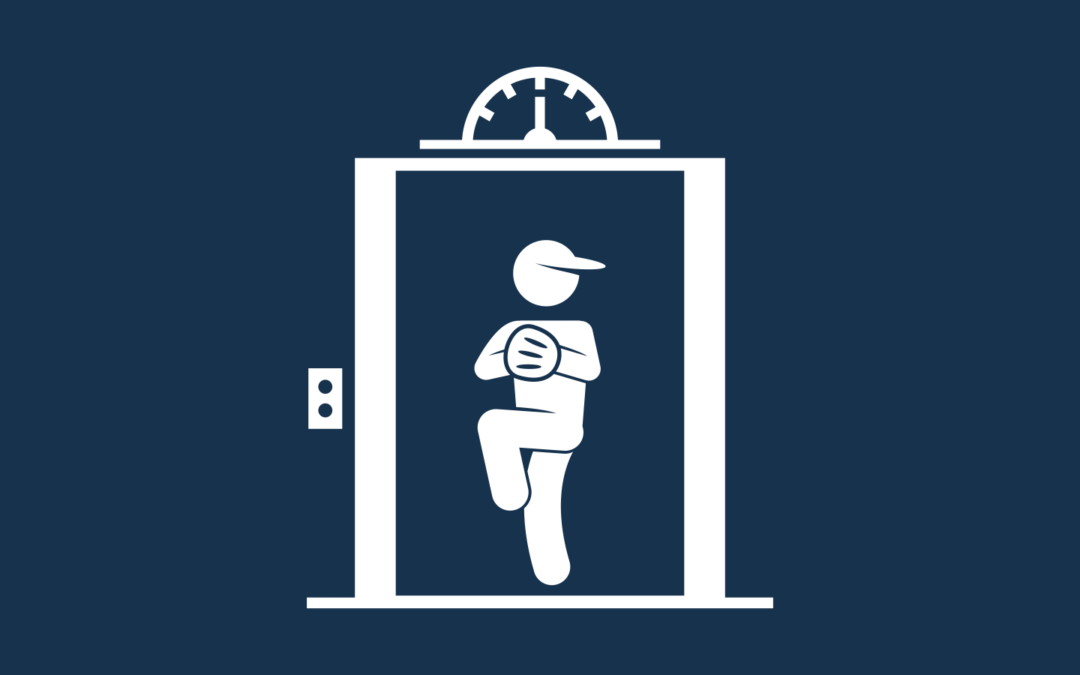When I work with Millennials and Gen Z students around the country, I’m often asked, “What’s an elevator pitch and why do I need one—or do I really even need one?” My short answer is, Yes! And furthermore, I think everyone needs one. I believe that regardless of what you do for a living, or what stage you’re at in your career, you need to be able to tell people a little about yourself and what you do—all packaged into a succinct and brief paragraph.
Sales people mastered the art of the elevator pitch hundreds of years ago—long before the actual invention of the elevator—but for many of us who aren’t directly in sales, we never really considered that we might need one until now. So if you’re unsure of what an elevator pitch is, or how to create one for yourself, read on.
I’ve divided this article into two parts. In Part I, we’ll define the term “elevator pitch” and discuss a few pointers for creating your own. And in Part II, I’ll share a few extra secrets the pros use for making your pitch stand out (positively, that is!) among your colleagues and competitors. Let’s get started!
BusinessDictionary.com (http://www.businessdictionary.com/), one of my favorite reference sites, defines an elevator pitch as, “a very concise presentation of an idea covering all of its critical aspects, and delivered within a few seconds (the approximate duration of an elevator ride).” Most career experts agree that a pitch should last between 20 and 60 seconds.
The most important point about an elevator pitch is that it’s a quick and easy dialogue starter. In other words, think of it as a conversational intro: if delivered well and to the right people, your pitch will prompt continued discourse on the topic you’ve introduced in the pitch. In this respect, an elevator pitch can be used in networking events, association trade shows, social get-togethers, or to introduce yourself to your new co-workers after starting a new job.
Here are six things to keep in mind as you create your personal elevator pitch:
- Understand what an elevator pitch is (and isn’t)
An elevator pitch is a brief, persuasive speech that you use to spark interest in what you or your organization does. You can also use an elevator pitch to create interest in a project, idea, or product. Keep in mind that it is not a resume listing of your skills or your company’s accomplishments.
- Keep your elevator pitch about 30 seconds long
Twenty seconds is even better. Write out your initial pitch and then time yourself, saying it at a brisk (but not rushed) pace, and making sure your tone of voice is positive and enthusiastic. And don’t just do it once or twice—practice over and over, until you feel completely comfortable. Practice your pitch a minimum of 15 to 20 times until you have it memorized and the delivery sounds smooth and natural.
Once you’ve mastered the correct vocal speed and tone, if your pitch is still over 45 seconds, be brutal with your editing and jettison all non-essential information.
- Compose yourself before you start
It’s important to find your calm center before you blast off into an elevator pitch. After all, you have only about 30 seconds to impress your listener and to put your point across—and you certainly don’t want to give the impression of nervousness or desperation. Here are some things that will definitely make people stop listening: forgetting what you want to say, fumbling or mispronouncing words or phrases, or racing through your pitch at the speed of light. Trust me, if any of this happens, you’ve already lost them. The fix? Practice truly does make perfect!
- Don’t use any industry jargon
Throwing jargon into an elevator pitch is like placing a giant speed bump directly into your presentation. Your listener’s brain will automatically stop paying attention to your pitch and try to figure out what the jargon meant. This is a good rule of thumb no matter who hears your pitch. Remember, your pitch is simply meant to be a conversational icebreaker, so leave the in-depth specifics for the follow-up conversation that your pitch will hopefully elicit.
- Have a variety of pitches memorized to suit your audience
You wouldn’t pitch a CEO the same way you’d pitch a sales manager, a vendor, or a new professional contact at your athletic club. Think about the kinds of people you meet in your job (or in your personal life) and tailor pitches to all of them. Even though most people’s end goals are probably quite similar (work smarter, have less stress, connect with other professionals, make money, etc.), the “hook” in your pitch might be entirely different for varying audiences.
- Just be yourself
Finally, the content of your elevator pitch is definitely important, but be sure to let your personality shine through, as well. Part of what you’re selling is you—and you’ll come across much better (and much more believably) if you can find your authentic voice and let others see you as the person you really are.
Stay tuned for Part II, where we’ll discuss a few more elements of a perfect pitch, and I’ll give you a few examples of where and how your pitch can be used. See you in two weeks, on October 10th!

